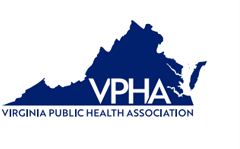Abstract
The purpose of this study was to investigate how young adults in Virginia received, evaluated, and responded to messages related to the coronavirus/COVID-19, a major disruptor of our time, and to understand how and when these messages influenced behavior. This was a sequential explanatory mixed methods study, including an online survey (quantitative) and virtual focus groups (qualitative). We surveyed a convenience sample of 3,694 Virginia residents by distributing a link to complete the survey online. Only data from18-24 year old adults (n=207) were included in the analysis for this study. Focus group participants were recruited from the survey participants as well as from a college-level introductory health class. Most (83%) young adult respondents reported national science and health organizations as a trusted source for COVID-19 information and over 50% of respondents reported getting information from state/local health departments (72%), healthcare professionals (71%), and online news sources (51%). Focus group participants emphasized social media as an additional major source of COVID-19 information. Focus group data revealed that young adults struggled with deciphering contradictory messaging, had a mix of logical and emotional reasons for deciding whether to adhere to guidelines, had a desire for consistent, fact-based public health messaging at the national level. The findings from this study underscore the importance of consistent, positive public health messaging in a public health crisis.
Recommended Citation
Cook, Natalie; Wenzel, Sophie G.; Silverman, Rachel; Short, Danielle; Jiles, Kristina; Markwalter, Teace; and Friesen, Mary Ann
(2022)
"A mixed methods investigation of how young adults in Virginia received, evaluated, and responded to COVID-19 public health messaging,"
Virginia Journal of Public Health: Vol. 7:
Iss.
1, Article 6.
Available at:
https://commons.lib.jmu.edu/vjph/vol7/iss1/6
Included in
Community Health and Preventive Medicine Commons, Other Public Health Commons, Public Health Education and Promotion Commons

